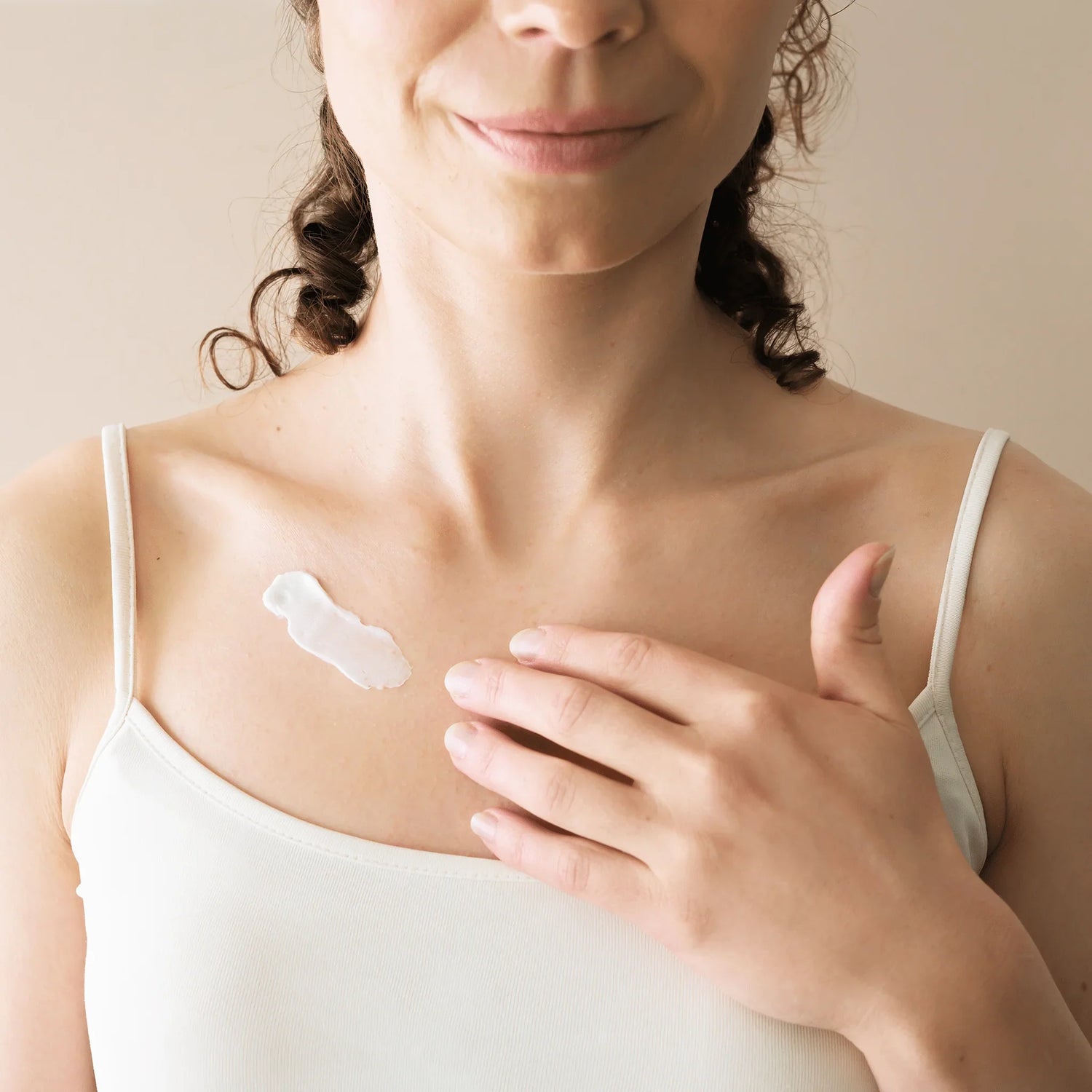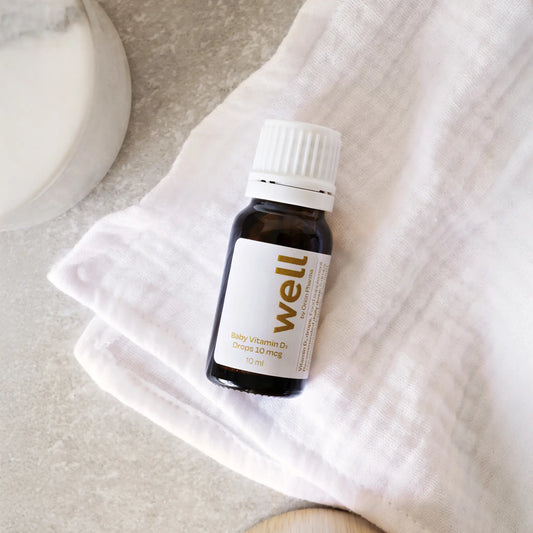
Omega-3 and vitamins while breastfeeding
Share
When your little baby finally arrives, life often turns upside down. Old routines no longer apply, and new habits need to be established. It’s easy to forget your own needs – but your body still requires nutritious food, whether you breastfeed or not.
Why is a balanced diet important during breastfeeding?
Producing breast milk requires extra energy and nutrients. Just like during pregnancy, you need a bit more vitamins and minerals while breastfeeding. A varied and balanced diet helps you meet these needs.
After giving birth, you no longer need to avoid foods that may contain the listeria bacteria or the toxoplasma parasite – these are not transmitted through breast milk. So, you can enjoy cheeses and cured or smoked fish again.
Choose foods rich in vitamin D, omega-3, iron, iodine, and folate. A varied diet is the foundation, and if needed, vitamin and mineral supplements can be a helpful complement.
One example is Well by Orion Pharma Pregnancy & Breastfeeding Multivitamin, a supplement designed for pregnancy and breastfeeding that can be used alongside a balanced diet.
Omega-3 while breastfeeding
Omega-3 fatty acids are essential polyunsaturated fats. Your body cannot produce them on its own, so you need to get them from food or supplements.
The most well-known omega-3 fatty acids are EPA (eicosapentaenoic acid) and DHA (docosahexaenoic acid), found naturally in fatty fish such as salmon, mackerel, and herring. Another fatty acid, ALA (alpha-linolenic acid), is found in plant-based foods.
DHA is an important omega-3 fatty acid during breastfeeding, and your intake influences the DHA content of your breast milk. If you don’t eat fish, supplementing with DHA may be beneficial. The recommended intake is 200 mg DHA in addition to the recommended daily intake for omega-3 fatty acids. Well by Orion Pharma Maternity Omega contains DHA from fish oil and is tailored for pregnant and breastfeeding women.
Foods that contain omega-3
Fish and seafood provide several nutrients that are especially important when breastfeeding. Fatty fish such as farmed salmon, mackerel, and herring are rich in omega-3, vitamin D, and iodine. Leaner fish also contribute vitamin D, so try to vary your choices.
If you don’t eat fish, you can get omega-3 from plant-based sources like rapeseed oil, walnuts, and certain algae.
Good sources of omega-3:
- Fatty fish such as salmon, mackerel, herring, and sardines (contain EPA and DHA).
- Certain algae (contain EPA and DHA).
- Rapeseed, sunflower, corn, and sesame oils.
- Walnuts.
Fish is an excellent source of essential fatty acids, but remember that some species – such as perch, pike, zander, burbot, eel, and fresh or frozen tuna – may contain elevated levels of mercury, dioxins, or PCBs and should be eaten less frequently.
Foods rich in vitamin D – important for bones
Vitamin D is needed for immune function and bone health. In Sweden, most dairy products, plant-based drinks, spreads, and fat blends are fortified with vitamin D.
Vitamin D also occurs naturally in:
- Eggs
- Meat
- Fatty fish
- Rapeseed and linseed oil
- Walnuts
If you don’t eat fish or vitamin D-fortified products, the Swedish Food Agency recommends taking a vitamin D supplement.
Does my baby need vitamin D?
Yes. Vitamin D is essential for bone growth and development. According to the Swedish Food Agency, all newborns should receive vitamin D drops daily – 10 micrograms per day from birth up to two years of age, even if they are breastfed. Well by Orion Pharma Baby Vitamin D3 Drops 10 mcg is suitable from infancy and comes in drop form, making it easy to adjust the dosage.
Source: Livsmedelsverket



